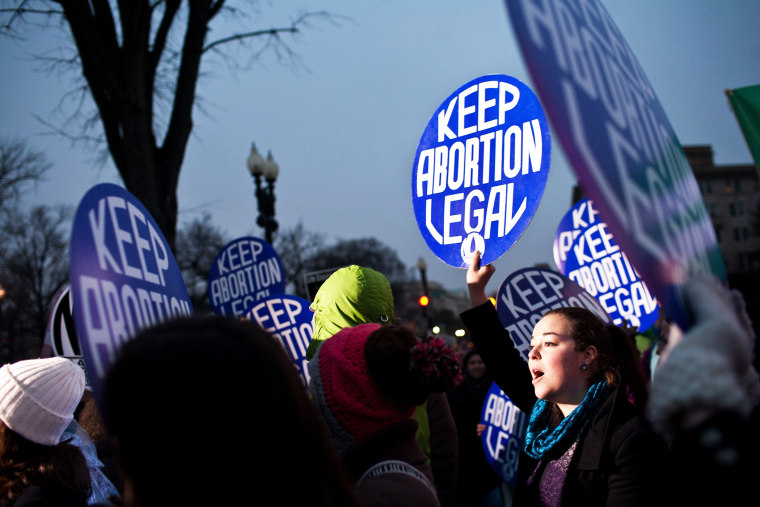Republican lawmakers in plenty of states have gone after reproductive rights in recent years, but in 2013, North Dakota lawmakers went much further than most. While the trend among conservative policymakers has been to impose abortion bans after 20 weeks of pregnancy, North Dakota passed a "fetal heartbeat" bill -- which banned abortions after just six weeks of pregnancy.
The measure, which would have required some women to terminate unwanted pregnancies before they even knew they're pregnant, was never actually implemented, since a district court judge said the law was unlikely to prevail in the courts.
And on the heels of North Dakota's defeat at the lower court, the state lost again at an appellate court today. Politico reported:
A federal appeals court has struck down the earliest state ban on abortion in the country, a move that could invite the Supreme Court to weigh in on one of the nation's most controversial social issues in the middle of a presidential election year. The 8th U.S. Circuit Court of Appeals on Wednesday struck down a 2013 North Dakota law banning abortion once a fetal heartbeat is detected, or about six weeks into a pregnancy. The court said the North Dakota law violates Supreme Court precedent establishing that abortion is legal until a fetus is viable outside of the womb, usually about 24 weeks into pregnancy.
When North Dakota Gov. Jack Dalrymple (R) created the law two years ago, he acknowledged that legal fights were inevitable, but he saw the measure as "a legitimate attempt by a state legislature to discover the boundaries of Roe v. Wade."
In other words, North Dakota taxpayers were on the hook, financing an experiment of sorts -- the state would create a dubious law, knowing it would likely fail, as a political test. In the unlikely event that the law survived court challenges, policymakers would have successfully curtailed reproductive rights. If the law failed in the courts, North Dakota would have wasted time, money, and energy, which state Republicans were glad to invest in a culture-war cause.
The state can now appeal the case to the U.S. Supreme Court, but there's no guarantee the justices will want to hear the case, and even many on the right would prefer to see North Dakota quit now, rather than risk setting a new precedent in a case conservatives would almost certainly lose.
As for the larger pattern, opponents of reproductive rights haven't had much luck lately. Arkansas' 12-week ban was also derailed in the courts this year, as was Idaho's 20-week ban. A case against Georgia's 20-week ban is still pending. Wisconsin's 20-week ban was created just this week, and it's also likely to face legal challenges.
In Congress, a Republican push to create a federal 20-week ban is ongoing, though if the bill passes, it faces an inevitable veto from President Obama. It is a top GOP priority, however, and would be high on the national to-do list if Republicans control both Congress and the White House in 2017.
